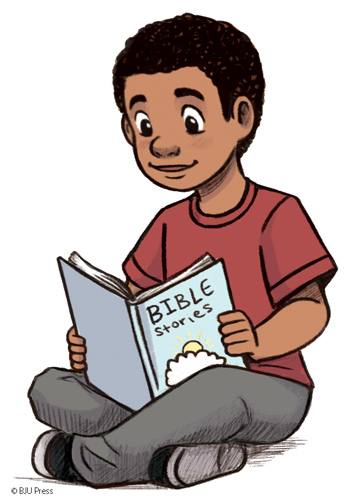Have you ever spent too much time studying the Bible? You know—you had two services on Sunday, and then because it was a special conference week, you attended daily workshops and sessions where amazing speakers taught you even more about God and His Word. Then to make things worse, you even found yourself reading the Bible for fun in your afternoon free time. That was just awful, wasn’t it?
I’m pretty sure I’ve never met a real Christian who felt that way. Of course, you can get tired. You can get frustrated trying to manage a schedule and Bible study. But if you know the Lord, there’s always great joy in learning about Him through His Word (Psalm 119:97). There’s nothing else as valuable as cultivating true knowledge and fear of the Lord (Psalm 19:10).
Sometimes when we divide up our time for the school week, we don’t always reflect this priority. We spend hours and hours every week working on science projects and math problems with our children. Why? Because that knowledge and those skills are important. But even more important than that is what they use that knowledge and skill for. The education they go through is not an end; it’s a means to an end. They learn in order to live a certain way. Their worldview shapes the way they use all their knowledge and skill.

As our children learn music, history, science, and mathematics, it’s essential that they learn the Bible as well. The Bible is going to give them the Christian worldview. This is why Bible study has always been a part of Christian education. It is foundational. Without a thorough knowledge of God and His Word, we cannot direct our learning of science or art in the right way. And we must not assume that participating in public or family worship can take the place of rigorous personal study of the Bible. Our worship flows out of our knowledge, but it cannot replace it. We need our children to be studying and memorizing Scripture with the same academic effort that they study the American Revolution and memorize their multiplication tables.
Many tools are available for that purpose, but the best will be a curricululm that has the big picture in view. You need a tool that not only takes into account
- where children are academically,
- what Bible content they should be covering each level, and
- what they’re learning about in other subjects
but also has an overall strategy for combining all of these factors.
It is through rigorous Bible study that students acquire Bible knowledge, which is the foundation of a biblical worldview.
View courses for the BJU Press Distance Learning Bible curriculum.